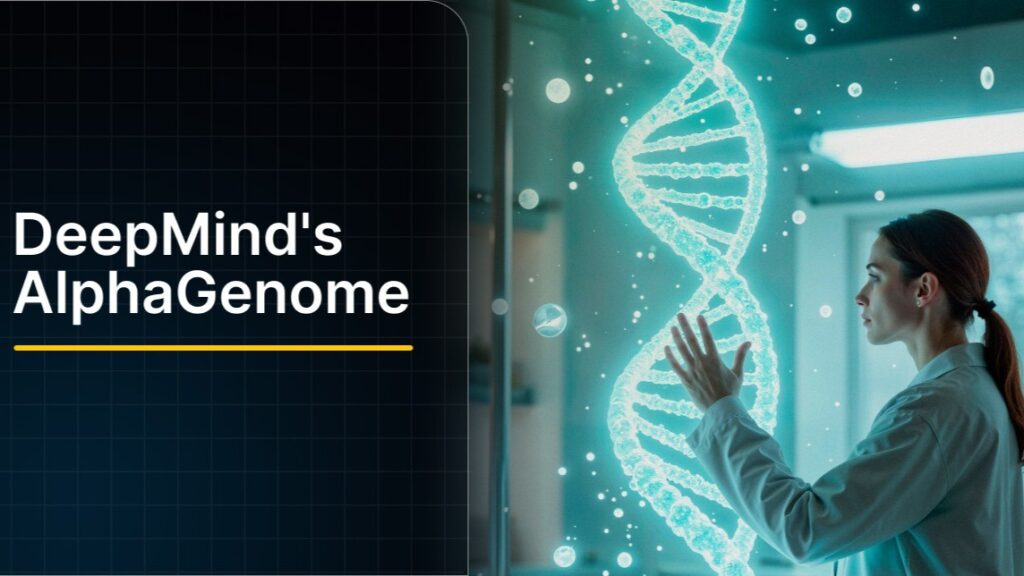Artificial intelligence is transforming genomics—and DeepMind’s latest model, AlphaGenome, is leading the charge. Released in June 2025, AlphaGenome is a powerful AI tool designed to decode how genetic variants influence gene regulation, especially in the vast non-coding regions of DNA often referred to as “genomic dark matter.”
As a biologist, I’ve seen many models come and go, but AlphaGenome is different. It doesn’t just analyze DNA—it interprets it at scale and with unprecedented resolution.
What Is AlphaGenome?
AlphaGenome is a unified AI model that predicts how mutations affect gene regulation across the entire genome. It processes up to 1 million base pairs at once and outputs high-resolution predictions for thousands of molecular properties.
| Feature | Description |
| Long-range sequence analysis | Handles up to 1 million DNA letters per input |
| Base-pair resolution | Predicts effects at the level of individual nucleotides |
| Multimodal output | Includes gene expression, RNA splicing, chromatin accessibility, and more |
| Variant scoring | Compares mutated vs. normal sequences to assess impact |
| Training data | ENCODE, GTEx, FANTOM5, and 4D Nucleome datasets |
“AlphaGenome provides scientists with more comprehensive information about the complex steps of gene regulation.” — DeepMind Blog
Why It Matters: Decoding the Non-Coding Genome
Only 2% of the human genome codes for proteins. The remaining 98%—once dismissed as “junk DNA”—is now known to regulate when and how genes are expressed. AlphaGenome focuses on this regulatory landscape, helping researchers understand how small mutations in these regions can lead to disease.
Real-World Example
In a recent study, AlphaGenome accurately predicted how non-coding mutations in leukemia patients activated nearby cancer-driving genes. This kind of insight was previously only possible through labor-intensive lab experiments.
Disease Prediction & Therapeutic Potential
AlphaGenome’s ability to simulate the effects of mutations opens doors for:
- Early disease detection Predicting risk from genetic variants before symptoms appear
- Targeted therapies Identifying regulatory switches that can be modulated with drugs or gene editing
- Rare disease research Mapping mutations in non-coding regions linked to rare conditions
“This technology could transform how we treat genetic diseases by revealing hidden switches in the genome.” — Scientific American via Le Scienze
How It Works (Simplified)
- Input: DNA sequence (up to 1 million base pairs)
- Processing:
- CNNs detect local patterns
- Transformers model long-range interactions
- Output: Predictions for gene expression, splicing, protein binding, etc.
- Variant Scoring: Compares mutated vs. normal sequences to assess impact
Availability & Access
AlphaGenome is currently available via API for non-commercial research. DeepMind plans to expand its use to clinical applications and other species.
| Access Type | Details |
| API Preview | Available for researchers |
| Commercial Use | Not yet supported |
| Expansion Plans | New species, clinical fine-tuning |
Final Thoughts
AlphaGenome is more than just another AI model—it’s a genomic microscope powered by machine learning. For scientists, it’s a tool to generate hypotheses at scale. For clinicians, it’s a step toward personalized medicine. And for the rest of us, it’s a glimpse into how AI is helping decode life’s blueprint.
